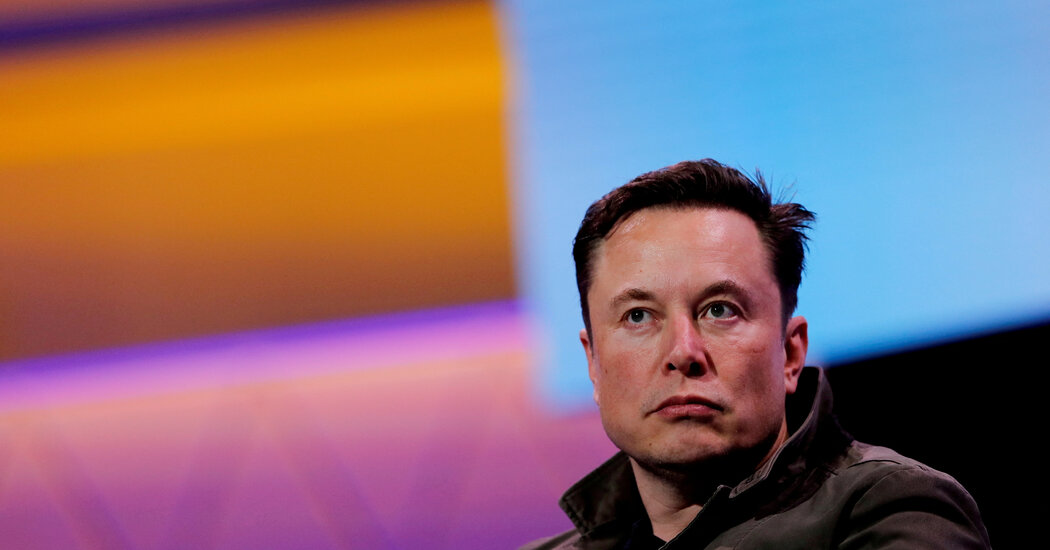SAN FRANCISCO — Two weeks after closing a $44 billion deal to buy Twitter, Elon Musk painted a bleak financial picture for the social media company and outlined a series of changes for employees in his first company-wide emails to staff.
In two emails sent to workers late Wednesday, Mr. Musk said the economy was challenging. He added that he plans to end Twitter’s remote work policy and wants employees to refocus on monetizing and fighting spam.
“Sorry this is my first email to the company, but there’s no way to cover it up,” Musk, 51, wrote in one email. “The economic picture ahead of us is bad.” Twitter is too reliant on ads and vulnerable to brand spending drops, he added, and will need to bolster subscription revenues.
In another message to employees, he wrote that “the absolute top priority is finding and suspending verified bots/trolls/spam.”
Mr. Musk’s emails contributed to the changes raging on Twitter. Last week, he laid off about 50 percent of the company’s 7,500 employees, and he pushed for product changes that would help Twitter make more money, including promoting a subscription product. He previously said the company is losing $4 million a day.
Changes on Elon Musk’s Twitter
A quick revamp. Elon Musk, who has a reputation for being an aggressive executive, has taken swift action to revamp Twitter since he completed his $44 billion buyout of the social media company in October. Here’s an overview of some of the changes so far:
Twitter, whose communications department has been fired, did not respond to a request for comment. Bloomberg previously reported Mr Musk’s emails.
On Wednesday, three top Twitter executives responsible for security, privacy and compliance also resigned, according to two people familiar with the case and internal documents seen by The New York Times.
The outgoing executives were Lea Kissner, the chief information security officer; Damien Kieran, the chief privacy officer; and Marianne Fogarty, the Chief Compliance Officer. They resigned a day before a deadline for Twitter to file a compliance report with the Federal Trade Commission, which oversees privacy practices at the company as part of a 2011 settlement.
Twitter has typically reviewed its products for privacy concerns before rolling them out to users, to avoid additional fines from the FTC and to stay in compliance with the settlement. But because of a rapid pace of product development under Mr. Musk, engineers may be forced to self-certify so that their projects meet privacy requirements, an employee wrote in an internal message seen by The Times.
“Elon has shown that he only cares about making up for the losses he incurs as a result of breaking his binding commitment to buy Twitter,” the employee wrote. The changes to Twitter’s FTC reviews could result in hefty fines and put people who work for the company at risk, the person warned.
“This poses huge personal, professional and legal risks for engineers: I expect you will all be pressured by management to make changes that are likely to lead to major incidents,” the employee wrote.
“We are following recent developments at Twitter with great concern,” Douglas Farrar, an FTC spokesman, said in a statement. “No CEO or company is above the law, and companies must follow our consent decisions. Our revised consent brief gives us new tools to ensure compliance, and we are ready to use them.”
More about Elon Musk’s Twitter takeover
Twitter is under pressure to make money. To fund the buyout, Mr. Musk took on $13 billion in debt, forcing Twitter to pay more than $1 billion a year in interest alone.
The company earns about 90 percent of its revenue from advertisers, some of whom have left the platform in recent days due to uncertainties about Mr. Musk’s commitment to remove toxic content from Twitter. He has responded by threatening “thermonuclear name and shame” of advertisers who choose to stop their spending.
Mr. Musk has also raced to find new subscription revenue. One of his first projects was to revamp a subscription service, Twitter Blue. He raised the price to $8 a month and said subscribers would get a verification check, which Twitter typically gives to prominent users such as celebrities and politicians.
In one of his emails to staff on Wednesday, Mr. Musk said subscriptions should eventually make up about half of the company’s revenue. “Without significant subscription revenue, there’s a good chance Twitter won’t survive the coming economic downturn,” he wrote.
Mr. Musk also told employees to come back to the office on Thursday and work a minimum of 40 hours a week from there. Twitter’s staff has been remote since the start of the pandemic, and in recent years its employees have been allowed to choose where they want to live rather than staying in cities where the company has offices.
At some of Mr. Musk’s other companies, including electric car maker Tesla and rocket maker SpaceX, he has also said that employees have to go to the office to work 40 hours a week.
David McCabe contributed reporting from Washington.

